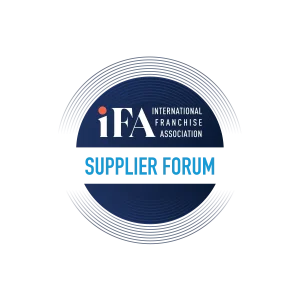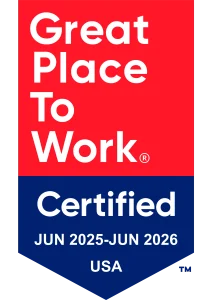How to Finance Your Franchise Purchase
Our knowledge about what it takes to become a franchise owner stems from nearly two decades of helping clients obtain the funds they need to start or buy a business. In fact, of the 20,000+ businesses we have helped fund, 60% have been franchises. While obtaining the money to fund a franchise location can feel like one of the biggest hurdles in your journey to business ownership, we are here to help you easily clear it by covering the common ways people fund their first franchise.
What is the Best Way to Buy a Franchise?
Finding funding to purchase a franchise location is often one of the most difficult aspects of becoming a franchisee. In this chapter, we’ll take a high-level look at a variety financing options. Now, we’re a financing company – this topic is where we shine. And it probably doesn’t surprise you that this guide is not the only complete guide we’ve written. In fact, we have two guides that cover financing options in depth. Throughout this chapter, we’ll be linking off to different chapters in those guides that will detail out everything you need to know about that particular option.
If that feels overwhelming to you, don’t worry! We have an office full of experts who specialize in talking people through their financing options. You are always welcome to call in and get all of this information over the phone and ask questions about your particular situation. If that sounds more your style, give us a call at 888.472.4455. No cost, and no pressure.
Sticking with this chapter? Great. Let’s get started!
401(k) Business Financing
401(k) business financing, otherwise known as Rollovers for Business Start-ups or ROBS, is a financing option that allows you to tap into your 401(k), IRA or other eligible retirement account as capital to purchase your franchise location. Even better, ROBS allows you to finance your business without debt, early withdrawal fees or tax penalties. This solution is most commonly used by individuals who do not have the cash on hand to outright purchase the business – which is the case for most of us, let’s be real.
ROBS is also great for aspiring business owners who may not qualify for a business loan, those who don’t want to go into debt or those who don’t want to collateralize their home or other personal assets. It’s an ideal option for individuals with $50,000 or more in retirement assets and want to grow their retirement funds by investing in themselves – not the stock market.
Sound interesting? Visit our Complete Guide to 401(k) Business Financing: Rollovers for Business Start-ups to learn all about this excellent financing option.
Small Business Administration Loan (SBA Loan)
An SBA loan is a government-backed loan aimed at helping American entrepreneurs fund their businesses. The Small Business Administration is not directly lending funds to entrepreneurs – instead, the SBA gives a guarantee to the bank that if the entrepreneur defaults on the loan, the SBA will pay back at least part of the loan. So, the bank is lending you the money, and the SBA is backing that loan up. Why is that necessary? Because small business loans are viewed as a riskier investment for a bank. However, the bank’s management can feel much more confident they’ll get their money back if the government is guaranteeing the loan – which is exactly what the SBA does.
There are several SBA programs, but most business owners get either a 7(a) loan or working capital loan.
SBA 7(A) Loans
The SBA 7(a) loan is the preferred small business loan, because it can be used for nearly any business purpose. It has low interest rates, longer repayment terms and a down payment requirement that is based on business type (independent vs. existing or franchise – more on that later). An entrepreneur can get up to $5 million with this loan, though over half of all recipients receive between $350,000 and $2 million. The SBA 7(a) loan can also be used in conjunction with other funding methods, like ROBS – handy, right?
Now, about that down payment requirement: this particular loan can be an excellent choice for some franchisees, as the down payment is a full one-third smaller for an existing business than it is for a brand-new start-up. However, this applies to individuals who are purchasing an existing location from a current franchisee – not building out a whole new one. Buying an existing franchise is called a transfer, and this is the type of franchise purchase that the SBA likes.
Entrepreneurs looking to finance a franchise transfer typically need to put 20% down, while a new location or start-up business requires 25 – 30% down.
SBA Working Capital Loans
A working capital loan is a great option for entrepreneurs who are looking for $25,000 to $150,000 in order to operate the business – hence “working capital.” These loans have a lower interest rate and can close much faster than other financing alternatives, sometimes in as little as 6 weeks. They differ from 7(a) loans in a lack of down payment or collateral requirements, among other things.
The SBA loan program can be an excellent option for anyone looking to purchase a franchise location. And if you don’t have the cash for that 20 – 30% down, take another look at Rollovers for Business Start-ups – ROBS can be used to finance that down payment, while the SBA loan finances the rest of the franchise purchase. Check out The Complete Guide to Your Small Business Funding Options: SBA Loans for everything you need to know about SBA loans.
Portfolio Loans
A portfolio loan allows you to tap into your investment portfolio without having to liquidate your securities or pay capital gains tax. As long as you have $85,000 or more in your portfolio, you’re good to go. A line of credit is set up that uses your portfolio as collateral, similar to how the equity in your home acts as collateral in a home equity line of credit (HELOC).
One of the best things about a portfolio loan is the crazy low interest rate, which can range from 2 to 5 percent — much lower than a rate you’d find on a standard bank loan. The downside is the risk involved: if the market suddenly tanks and the value of your portfolio falls below the value of your loan, you may be required to pay back the loan.
Interested in learning all about portfolio loans? Head over to the Portfolio Loans section of our small business funding guide to read all about them!
Unsecured Loans
Unsecured loans take the simple concept of using a credit card to pay for something to another level: if you need a $5,000 loan, a single card will do just fine. But what if you need $150,000? A company that specializes in unsecured loans will help you find credit cards that allow a high balance, don’t have cash advance fees or interest payments for at least a year. They then apply for and liquidate those cards on your behalf – before those credit inquires hitting your credit score.
You’ll then have anywhere between $10,000 and $150,000, depending on factors like credit history and score. Those funds go toward financing your business, which hopefully will in turn generate money that will help you pay off the credit card debt within a year or two. This tends to have a short-term negative effect on your credit score. But, with appropriate management of the debt and regular payments toward the balance, an unsecured loan can actually benefit your credit score in the long run.
It is easy to see why unsecured loans have a negative stigma in the business funding sphere: they do carry a certain amount of risk. Because of this, some franchisors won’t accept unsecured loans as a financing option. Be sure to check with any brand you’re interested in to see which financing methods they do accept!
Learn more about unsecured loans, the risks and rewards and when they make the most sense in the Unsecured Loans section of our guide to small business funding.
Other Ways to Fund Your Franchise
Okay! We just covered some great information, and directed you off to the appropriated guides and chapters for you to learn even more about these financing methods. Do keep in mind that this is not an exhaustive list – it’s a high-level look at some of the most effective, common and user-friendly financing methods. Our Complete Guide to Your Small Business Funding Options is really the place to go for all of your financing information needs, including solutions not included in this chapter.
As you begin to narrow down which franchise brand you’re interested in, the corporate team will also be a solid resource for you. Often franchisors have a pool of financing companies and options that they suggest, and some (like we mentioned in the unsecured loans section) that they prefer you avoid. And, as per usual, we highly recommend that you speak to a professional to make sure your decisions are fully informed.

















